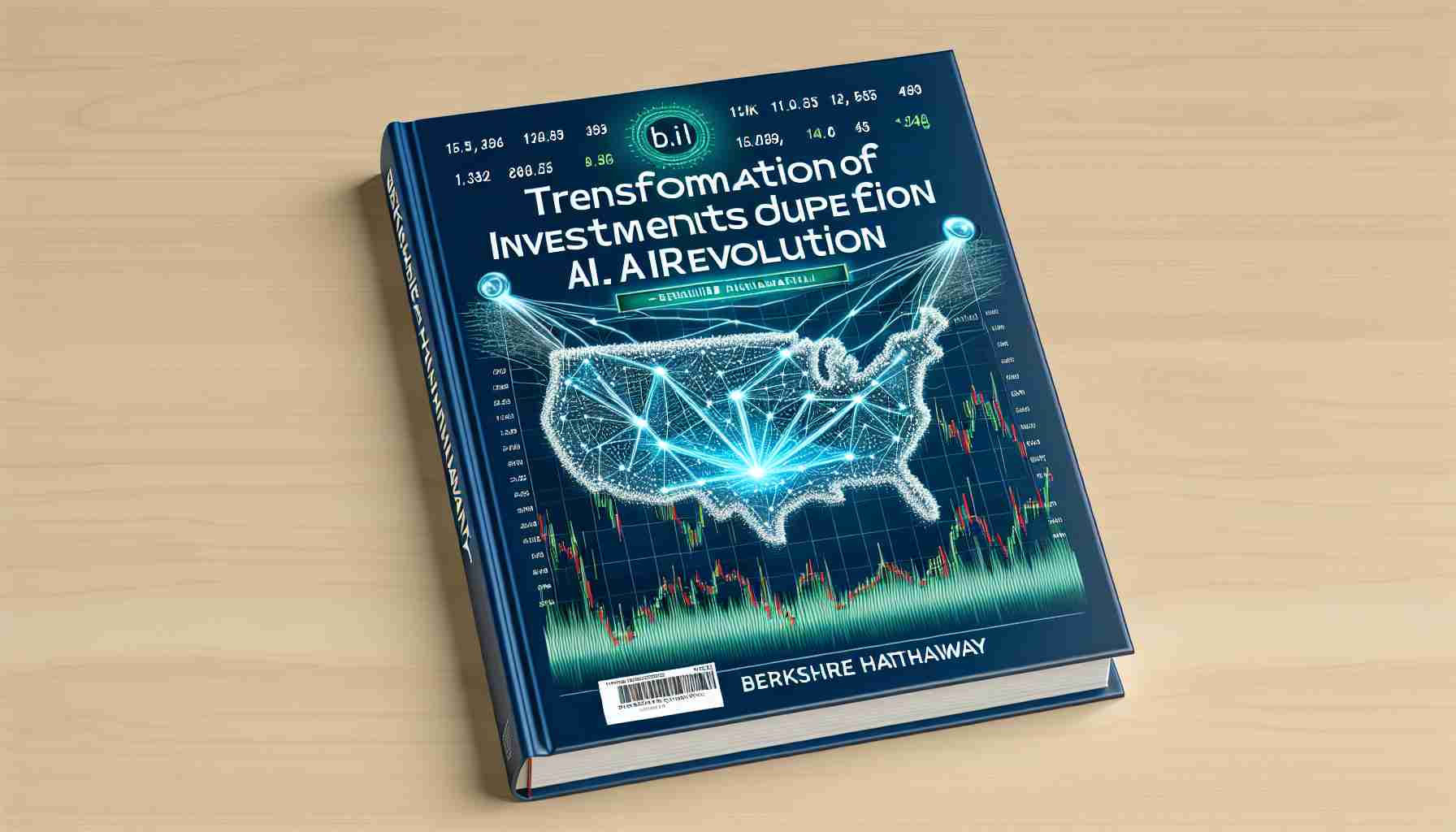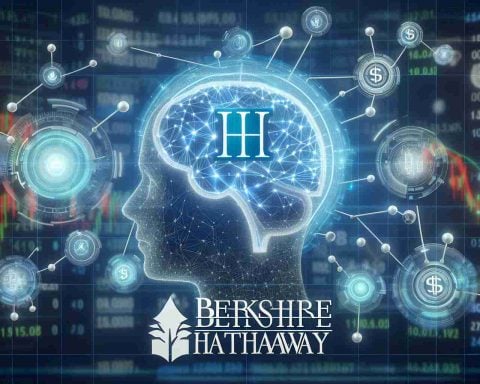- Berkshire Hathaway’s Class B shares (BRK.B) are traditionally seen as stable investments under Warren Buffett’s leadership.
- Rapid advancements in artificial intelligence (AI) are reshaping investment landscapes, influencing all sectors including Berkshire’s portfolio.
- AI integration promises enhanced operational efficiency and potential for unprecedented value and profitability gains for BRK.B.
- The insurance sector within Berkshire’s portfolio faces AI-driven disruptions in risk assessment and claims processing.
- Berkshire Hathaway’s adaptability to AI challenges and opportunities may determine its future stock resilience and growth.
- Embracing AI and new technologies is crucial for securing the future of investment portfolios like BRK.B.
Berkshire Hathaway’s Class B shares, commonly referred to as BRK.B, have long been a stable choice for investors looking for consistent growth under the leadership of Warren Buffett. However, the rapid advancement of artificial intelligence (AI) could reshape how we perceive this stalwart of the stock market. As AI technologies increasingly influence every sector—from healthcare to transportation—investors are pondering the impact on Berkshire’s vast and diverse portfolio.
New technologies, particularly AI, offer opportunities but also pose challenges. Many companies within Berkshire’s portfolio are investing in AI to enhance operational efficiency and streamline processes. This technological shift has the potential to unlock unprecedented value and profitability, which could significantly boost BRK.B’s market performance. Notably, trends suggest that AI integration might be a critical determinant of stock resilience and growth in the future.
On the other hand, AI-driven disruptions in traditional industries could pose risks. The insurance sector, a significant part of Berkshire’s portfolio, is just one example where AI is redefining risk assessment and claim processing. The question remains: can Berkshire Hathaway leverage AI to stay ahead, or will these innovations challenge its known adaptability?
As BRK.B investors watch these developments closely, the message is clear: embracing new technologies like AI is not just about staying current; it’s about securing the future of investment portfolios. The unfolding story of how BRK.B adapts to this rapidly evolving landscape will be a pivotal narrative for investors worldwide.
AI’s Transformative Power: Will Berkshire Hathaway’s BRK.B Soar or Stumble?
How is AI currently impacting Berkshire Hathaway’s key sectors?
AI is significantly reshaping industries where Berkshire Hathaway has substantial investments, such as insurance, retail, and logistics. In the insurance sector, AI is transforming risk assessment and automating claims processing, which could lead to improved efficiency and lower operational costs. Retail companies in Berkshire’s portfolio are utilizing AI for supply chain optimization and personalized marketing strategies, aiming to enhance consumer experiences and drive sales. Logistics entities are deploying AI to streamline operations, improve route efficiency, and reduce fuel costs.
What are the potential risks and challenges of AI for BRK.B investors?
While AI presents opportunities for enhanced efficiency and growth, it also introduces risks. Rapid AI adoption could disrupt traditional business models, creating competition from tech-savvy startups that leverage AI more effectively. Additionally, ethical considerations and regulatory challenges surrounding AI implementation could pose hurdles. If companies within Berkshire’s portfolio fail to adapt swiftly, they might struggle against more agile peers, potentially leading to decreased value for BRK.B shareholders.
How can Berkshire Hathaway leverage AI to maintain its market stronghold?
To maintain its market position, Berkshire Hathaway needs to adopt a proactive AI integration strategy across its portfolio. This involves not only investing in AI technologies but also upskilling its workforce to effectively manage these tools. Collaborating with AI innovators and fostering an organizational culture that embraces technological change can further fortify its competitive edge. By strategically aligning AI advancements with business goals, BRK.B can unlock new sources of revenue and sustain its growth trajectory.
For more on AI’s impact on investing, you can visit TechCrunch or explore general investment insights at Bloomberg.



















